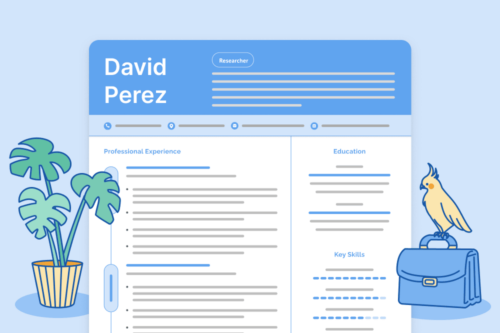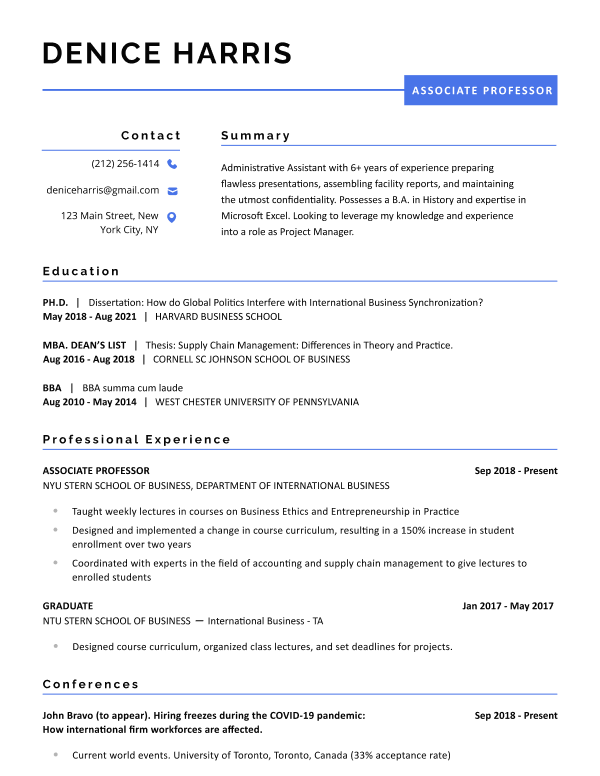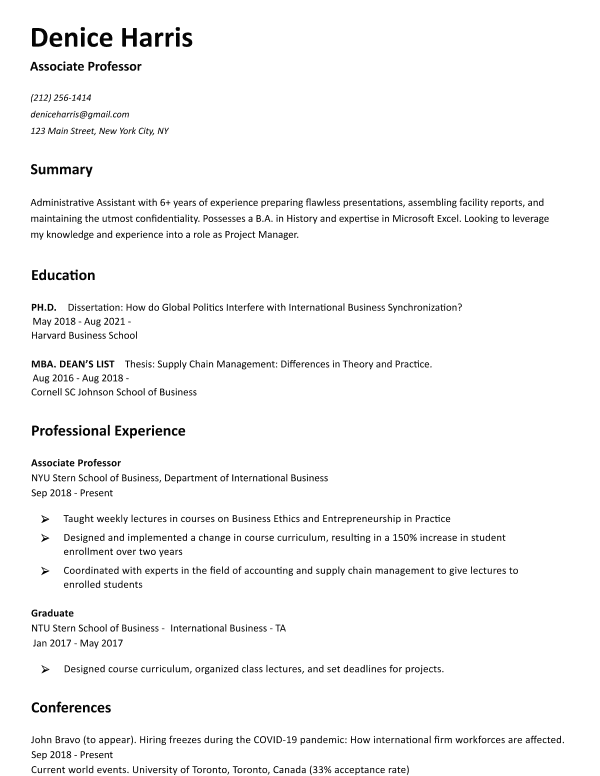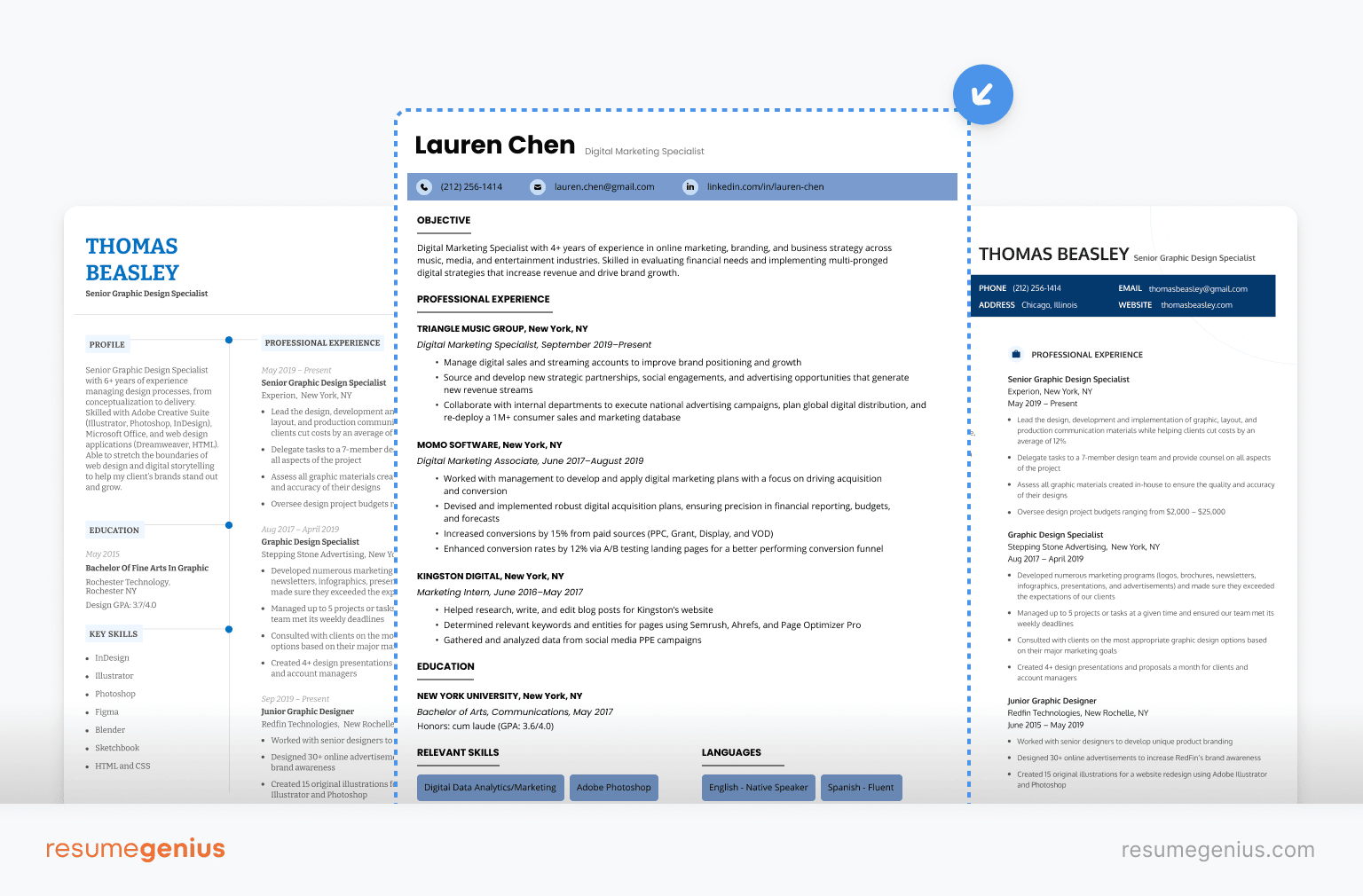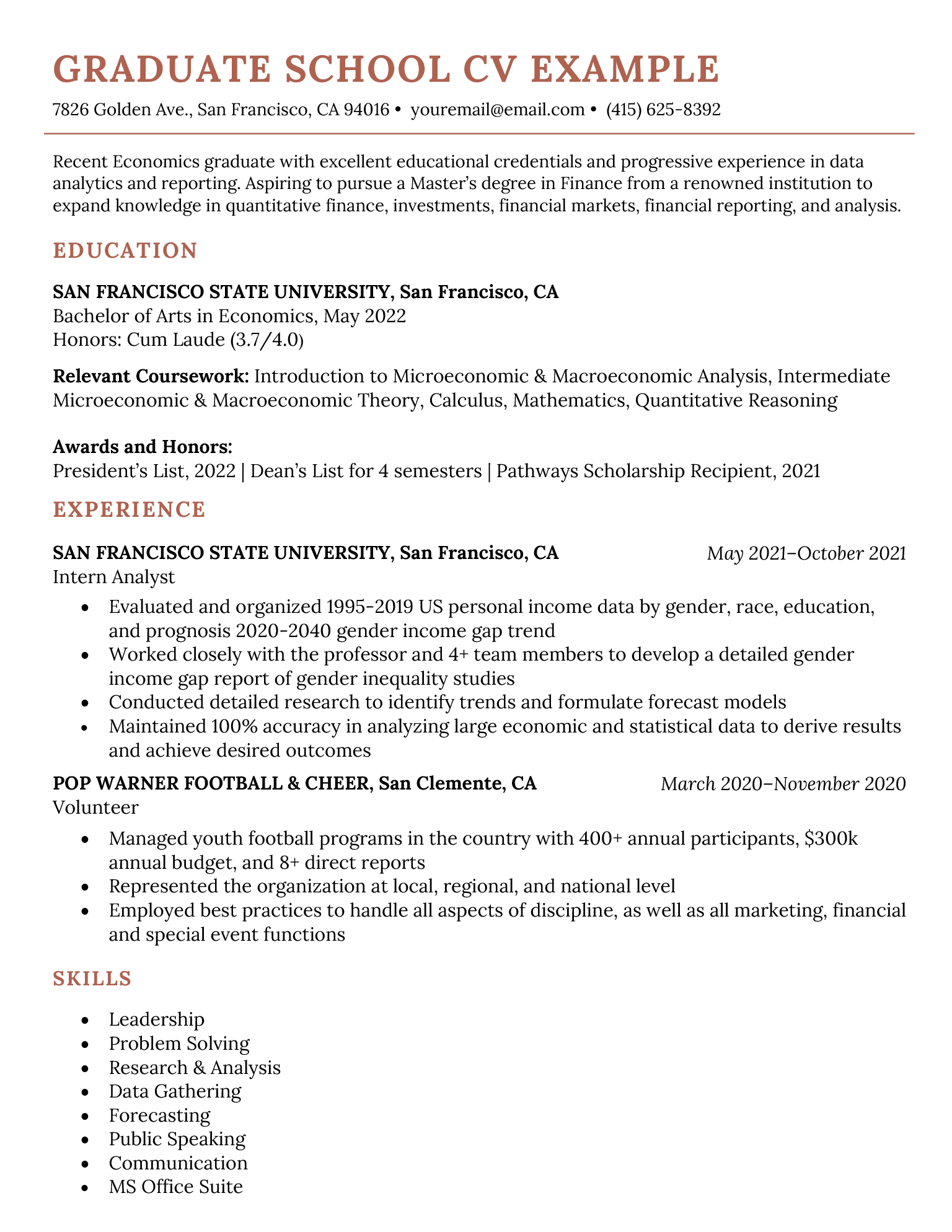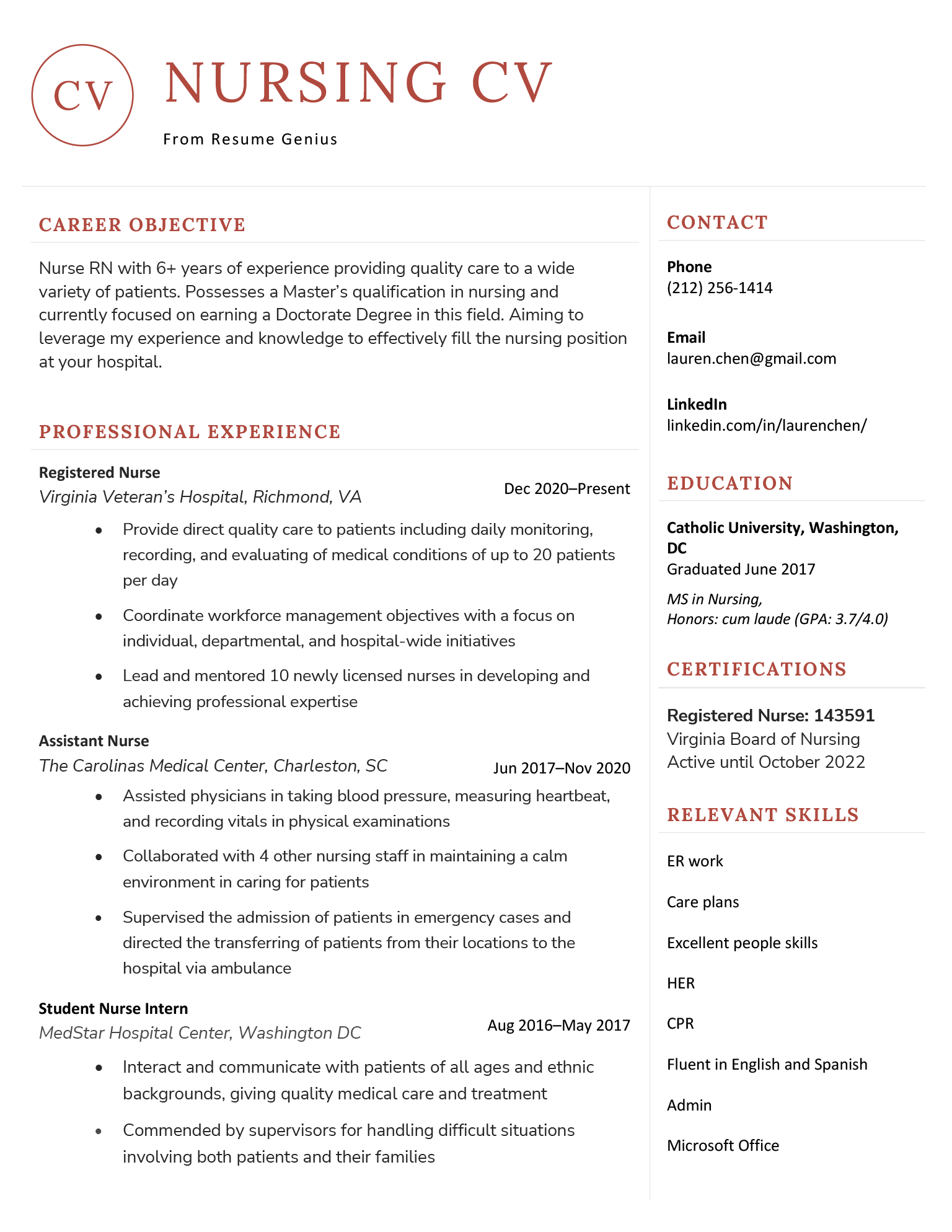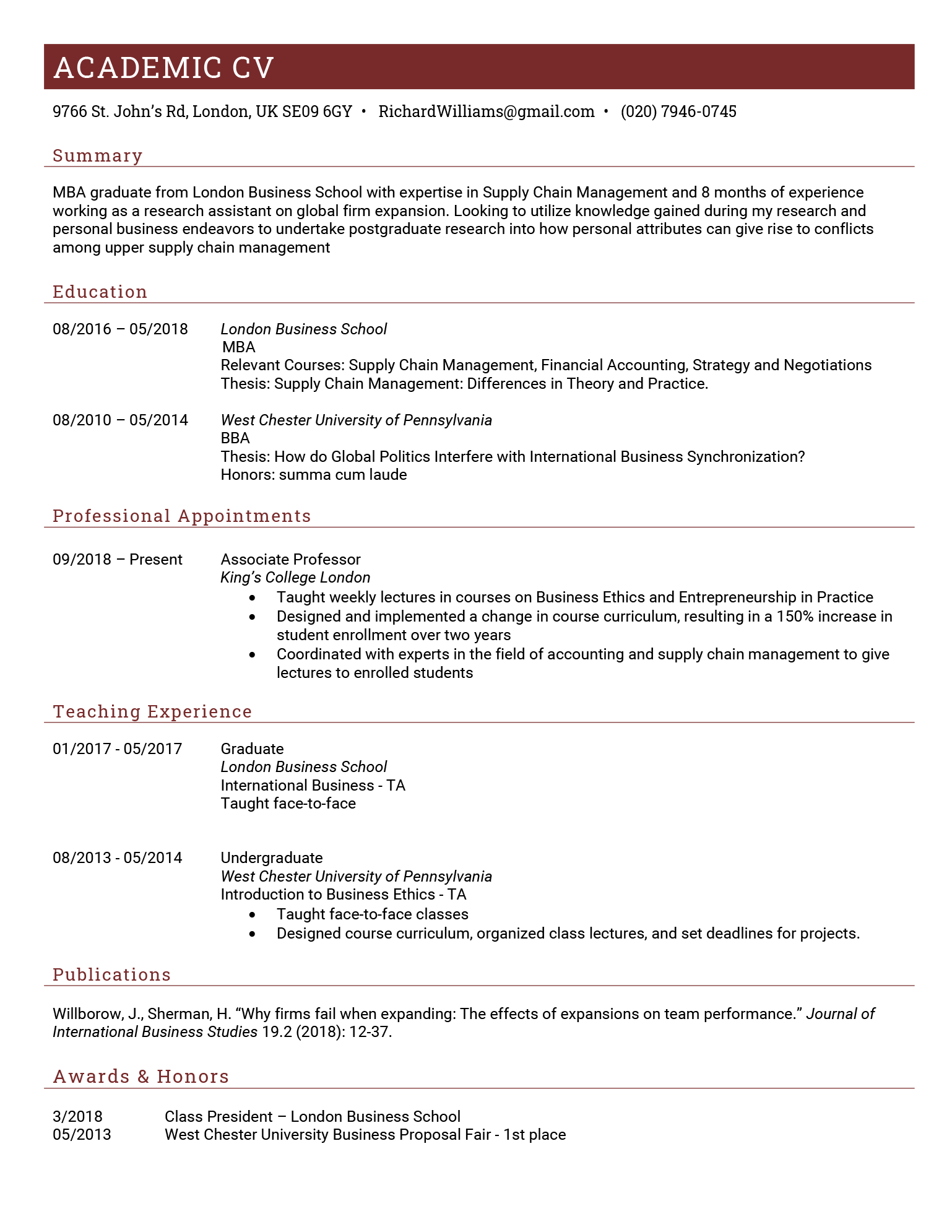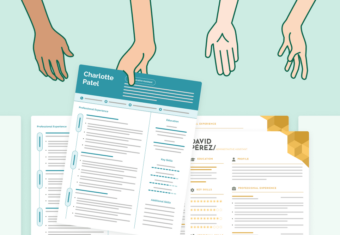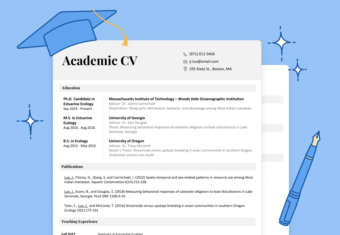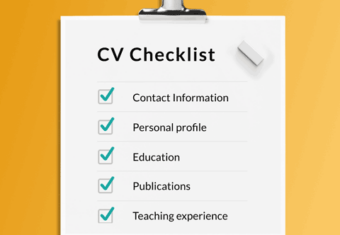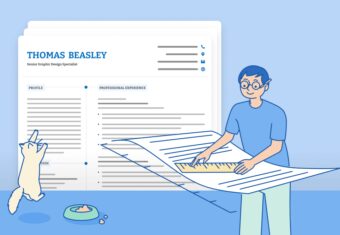In this article, we’ll go over exactly what a CV is and how to make one with our step-by-step guide and examples.
Our free-to-use cv builder can make you a cv in as little as 5 minutes. Just pick the template you want, and our software will format everything for you.
What is a CV for a job?
A curriculum vitae (CV) is a document used to apply for a job that overviews your skills, work experience, and education.
What is the difference between a CV and a resume?
You’ve probably heard the terms “CV” and “resume” both used to refer to the document you submit as part of a job application. So what is a CV vs a resume?
It’s simple: usually, a CV and a resume are the same thing. In most of the world, the words “CV” and “resume” both refer to the document you send to employers to apply for a job.
However, in the United States and Canada, a CV can also refer to an academic CV – the lengthy document used to apply for roles specifically within academia, such as research positions or grad school.
Put simply, if you’re applying for jobs in the US or Canada, you should use an American resume, and use a CV only to apply for academic positions. But if you’re applying for jobs anywhere else in the world, a resume and a CV are the same thing.
1. Decide on a CV format and style
Before you start writing your CV, you need to format it properly.
Open a new document in Microsoft Word or Google Docs and use the following settings:
- Set ½ – 1” margins on each side
- Use a font size between 10 and 12 points
- Select a professional font such as Times New Roman or Arial
Additionally, here are the sections you need to include on your CV:
- Header with your name and contact information
- Introduction
- Work Experience
- Education
- Skills
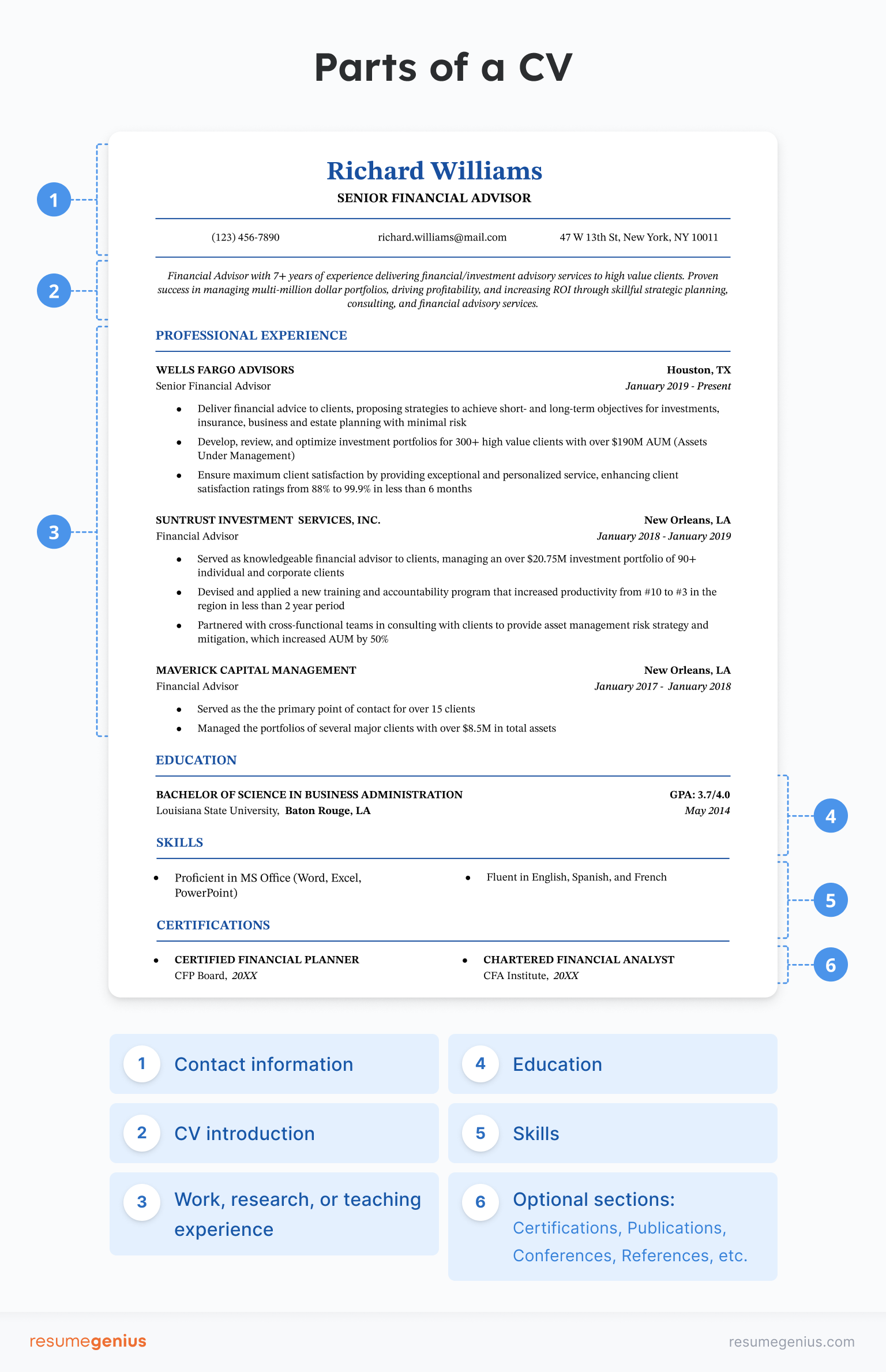
Any other information, such as volunteer work or hobbies, are optional additions to your CV.
Formal vs creative CV style
Once you’ve formatted your CV, you need to decide how to design it.
If you’re writing an academic CV or applying for a job at a suit-and-tie kind of workplace (such as a law firm), your CV’s style should be highly formal. A formal CV features a minimal design, serif fonts, and dark colors.
On the other hand, if you’re applying for a job in marketing or design your CV can be more creative. A creative CV design includes graphic details like skill bars, brighter colors, and more unique layouts.
Here’s a comparison of a formal CV and a creative CV so you can see the difference:
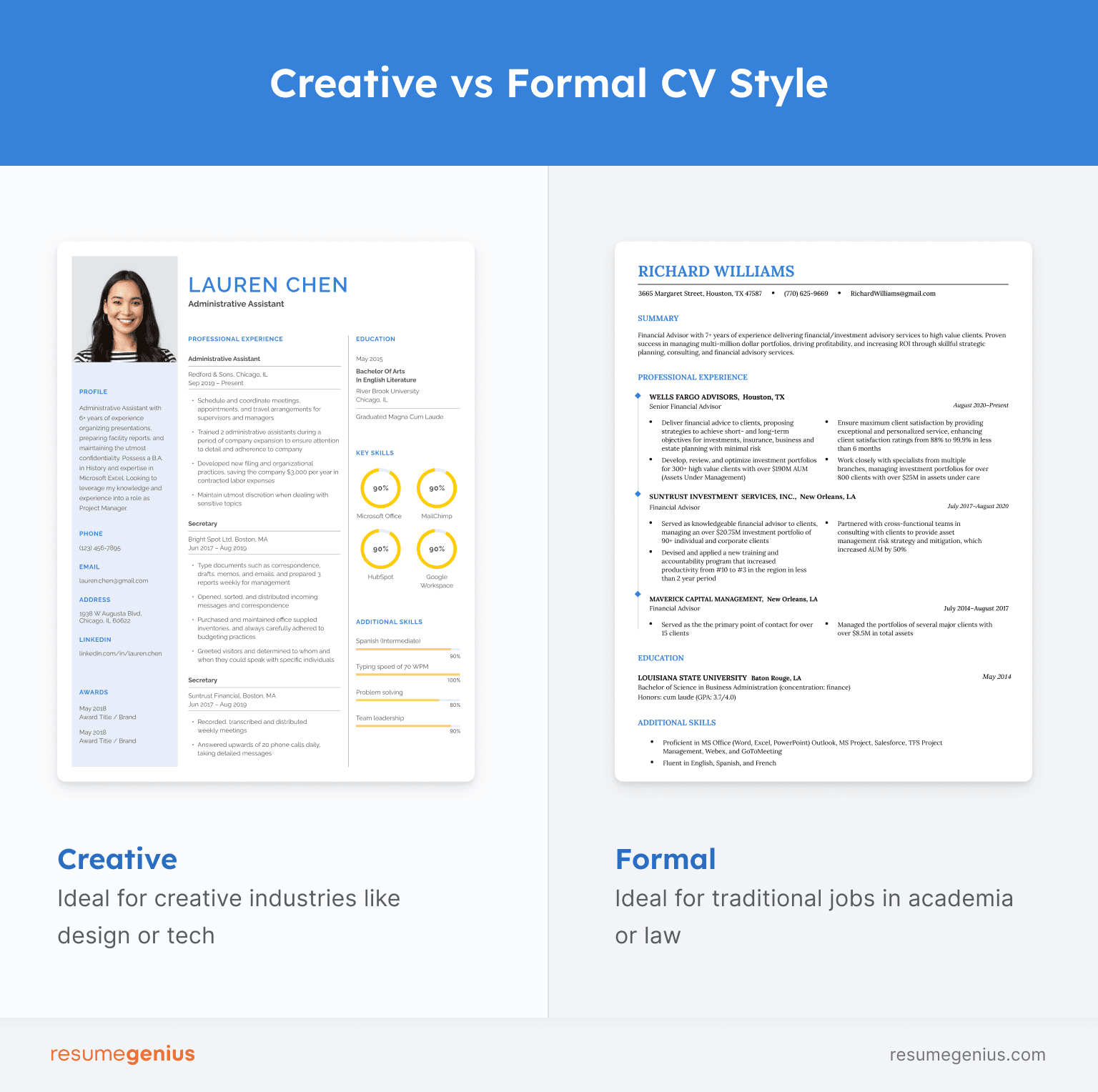
2. Clearly list your contact information at the top
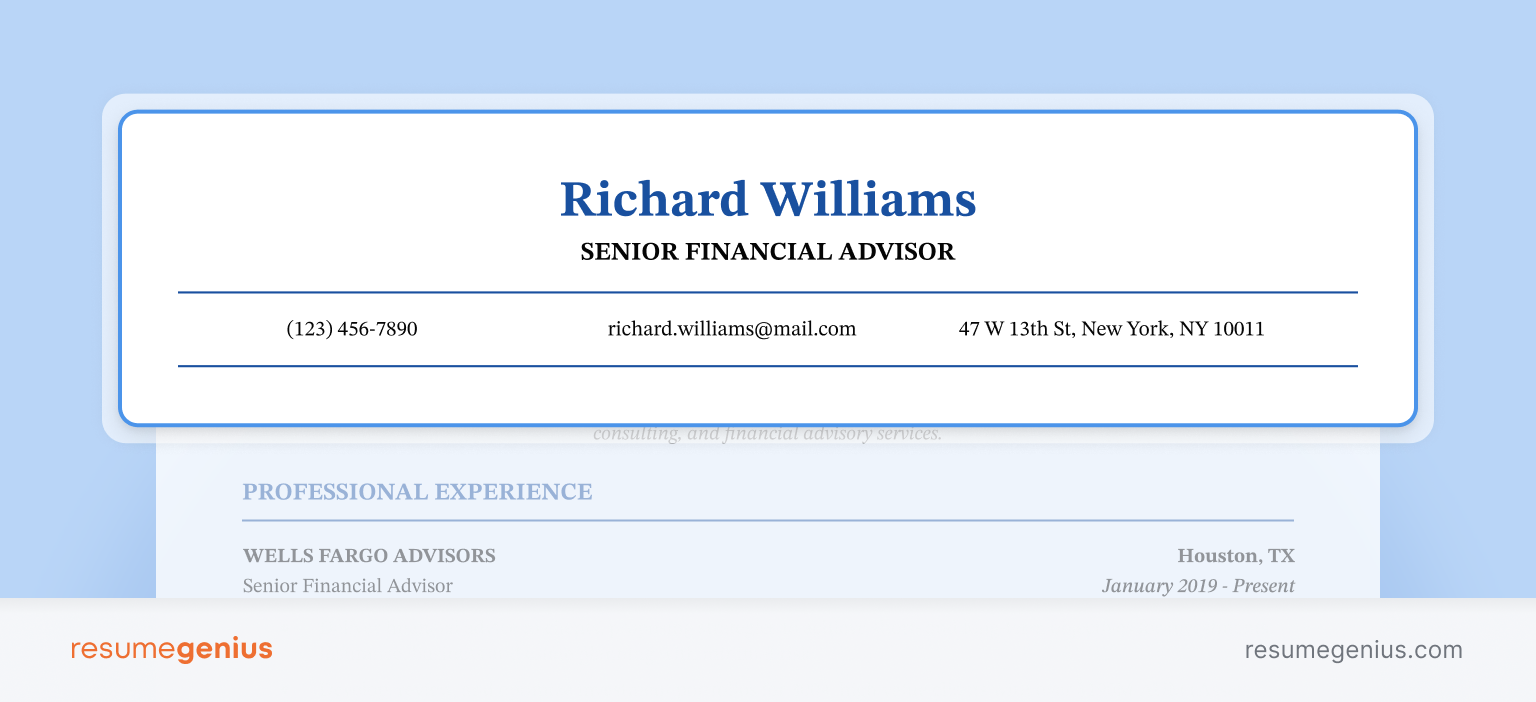
Employers need to know who you are and how to contact you if they want to offer you an interview.
Make it easy to find that information by including the following contact details in the header of your CV, at the top of the page:
- First and last name (in a large font)
- Telephone Number
- Email Address
- LinkedIn Profile (optional)
Make sure that your email address and LinkedIn profile are up-to-date and professional before adding them to your CV.
3. Open with a convincing CV summary
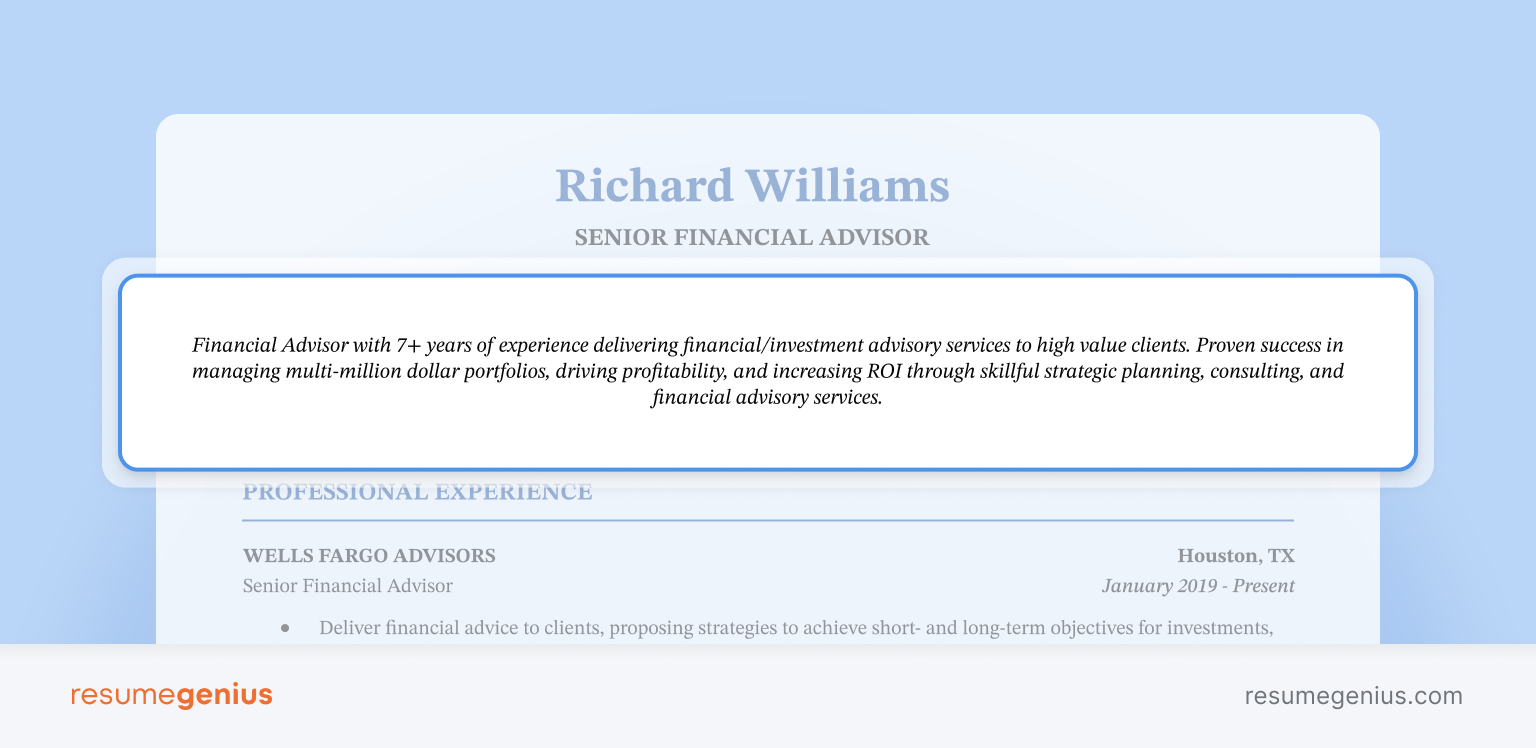
Placed right below your CV’s header near the top of the page, a concise CV summary (or professional summary) is the best way to immediately grab the attention of employers and convince them that you’re the right person for the job.
The goal of a summary is to quickly highlight your relevant experience and skills to convince employers to keep reading your CV.
4. List your relevant work experience in chronological order
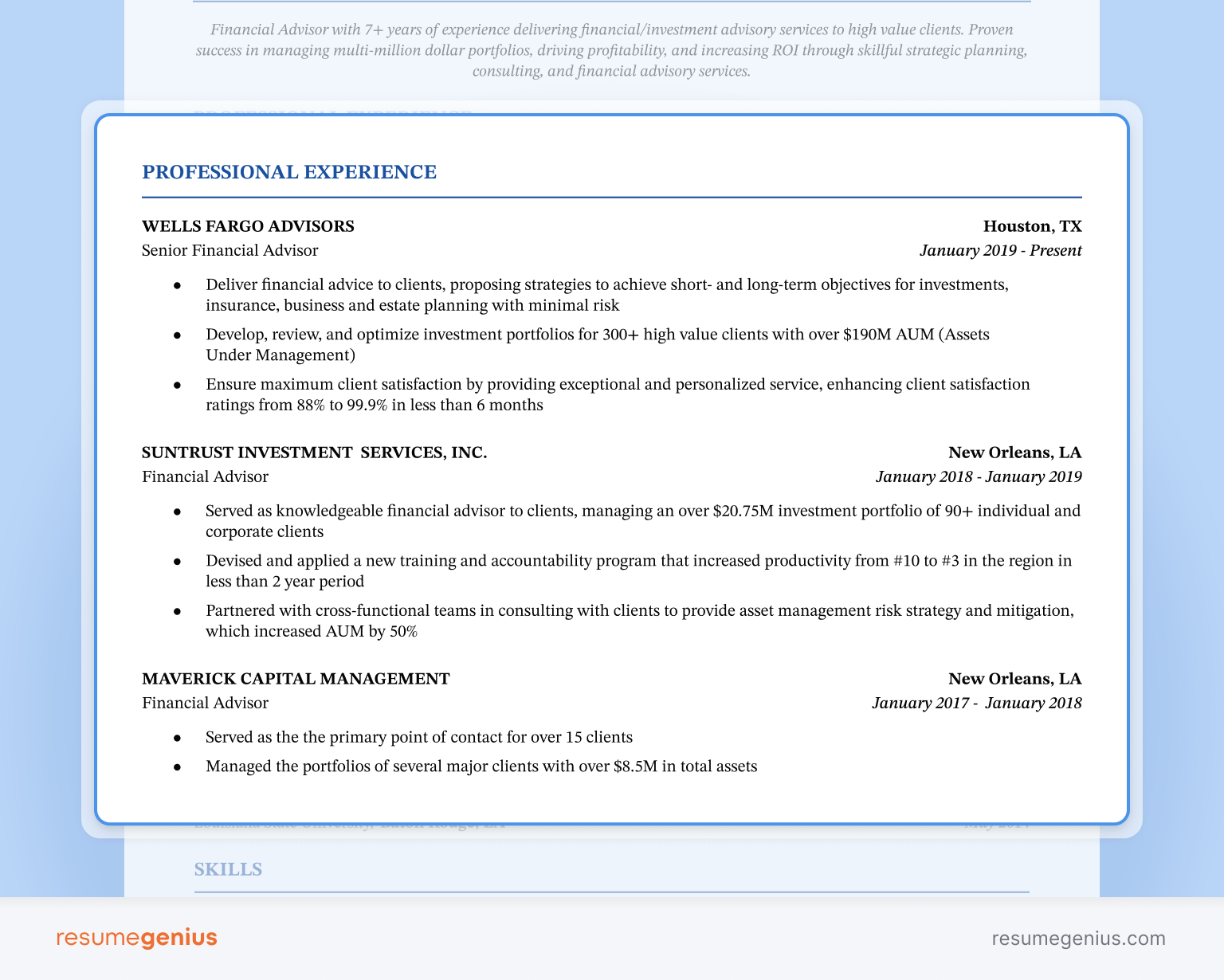
Your work experience section is where employers evaluate your qualifications and look for information about your achievements and previous responsibilities.
To write a strong work experience section, start by listing each relevant job you’ve held from the most recent at the top to the least recent at the bottom. Usually, you should list a maximum of four unique positions to keep your CV to an easily scannable length.
For each position you list, include the following information:
- Company name
- Job title
- Your start date and end date (month and year)
Then, include 3 to 5 bullet points for every position, outlining your key achievements and responsibilities while at that job.
When writing each bullet point on your CV, be sure to include the following details to make it as convincing as possible:
- An action verb that grabs attention and shows employers what you achieved
- Hard numbers (like dollar amounts or percentages) that provide context to those achievements
- An example of a specific and relevant responsibility
Here’s an example CV bullet point in action:
Enhanced conversion rates by 30% through A/B tested landing pages for a better-performing conversion funnel.
5. Highlight your education
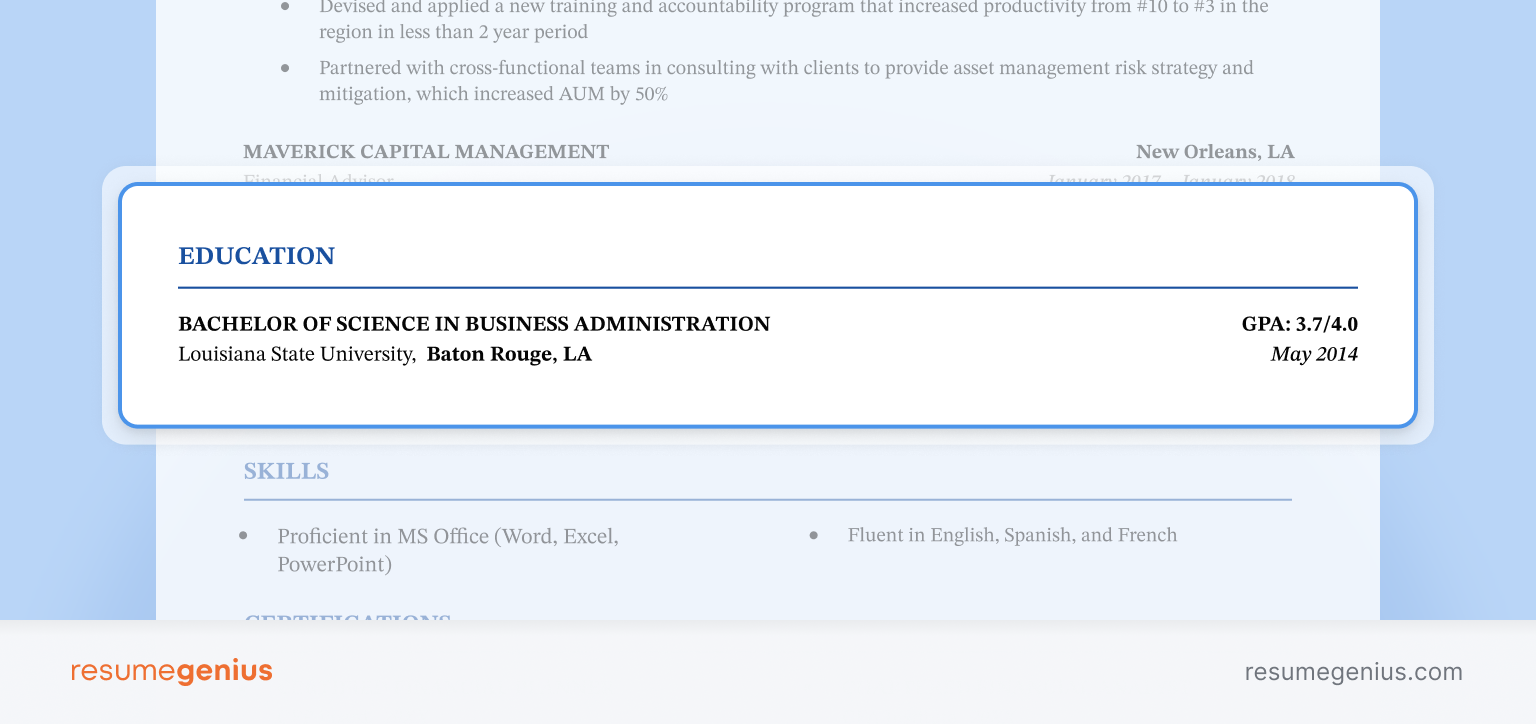
A clear education section is an essential part of your CV, especially if you’re a recent graduate or have minimal work experience.
If you have less work experience, your education section should be highly detailed to help showcase all of your academic accomplishments.
However, if you’re already years into your career, keep your education section brief to maintain focus on your work experience.
At a minimum, you should include the following information in your CV’s education section:
- The names of your university, community college, or technical school
- Location of the schools (city and state)
- Date of graduation (month and year)
- Degree(s)
If you’re a college student or recent graduate, you can also add the following information to your education section:
- GPA (if it’s above 3.5)
- Relevant coursework
- Honors or awards (such as summa cum laude or Dean’s list)
6. Showcase your skills
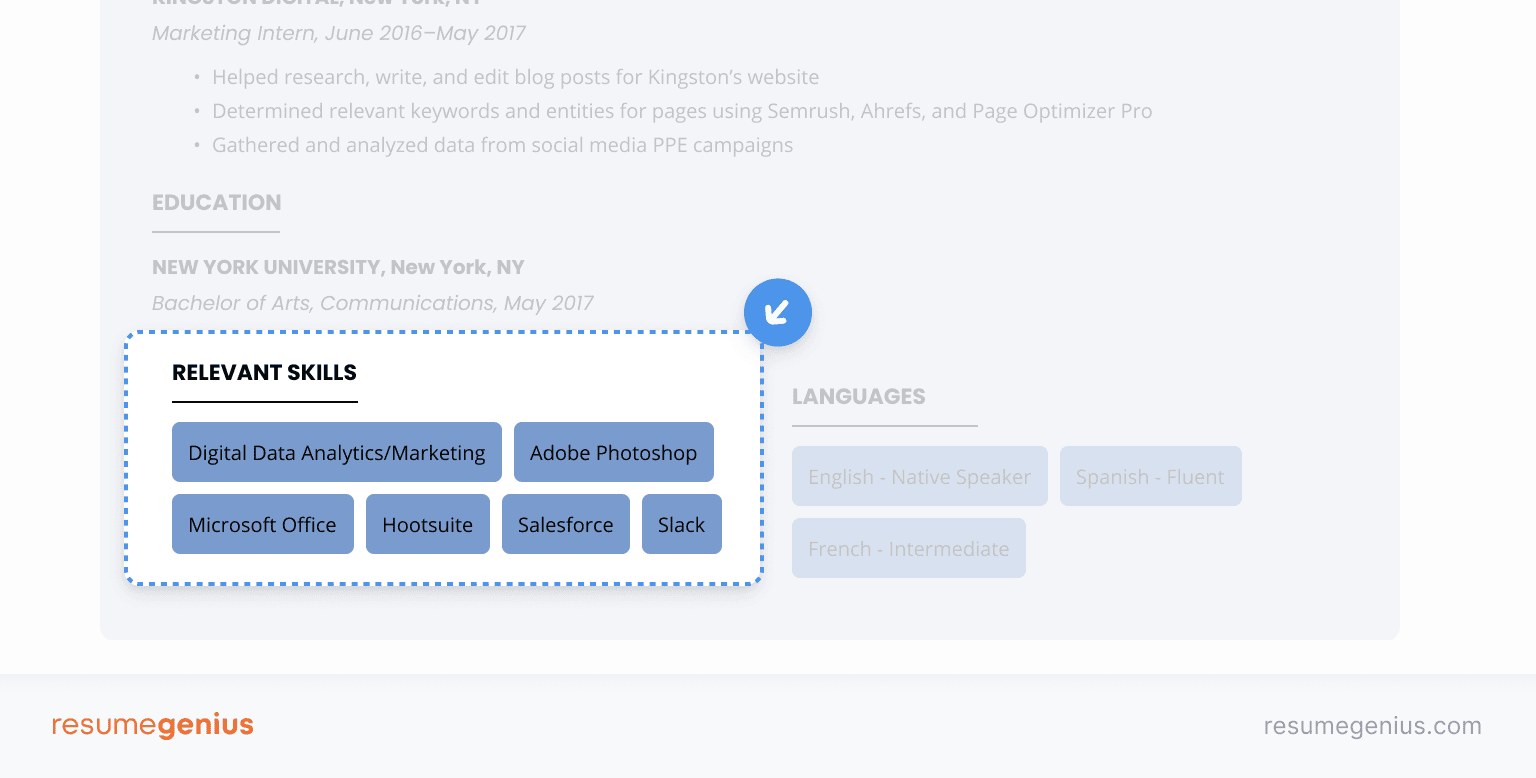
While listing a bunch of skills in the skills section of your CV doesn’t prove that you’re qualified for the job, highlighting targeted, specific skills does show employers that you at least understand the job requirements.
There are two primary types of skills that you should include on your CV: hard skills and soft skills.
Hard skills
Hard skills are job-specific abilities learned through experience, education, or training. Typically, hard skills are either the technical skills needed to perform a specific job, or a general set of abilities, like project management.
Here are some general examples of hard skills to include on your CV:
Hard skills to include on a CV
| HTML/CSS/Javascript | Language skills |
| Graphic design | Front-end development |
| UI/UX design | Social media management |
| Mechanical engineering | Perl/Python/Ruby |
| Hardware troubleshooting | Photo editing |
| Data analysis | Salesforce |
| Marketing | Carpentry |
Soft skills
Soft skills are innate character traits that positively impact how you work or interact with other people (like interpersonal skills or creativity). They’re naturally learned throughout your life and, unlike hard skills, can’t easily be taught in a classroom.
Some examples of soft skills for your CV include:
Soft skills to include on a CV
| Teamwork | Empathy |
| Communication skills | Creativity |
| Collaboration | TIme management |
| Conflict management | Organizational skills |
| Confidence | Decision making |
| Discipline | Leadership |
| Critical thinking | Interpersonal skills |
7. Add additional information that emphasizes your qualifications
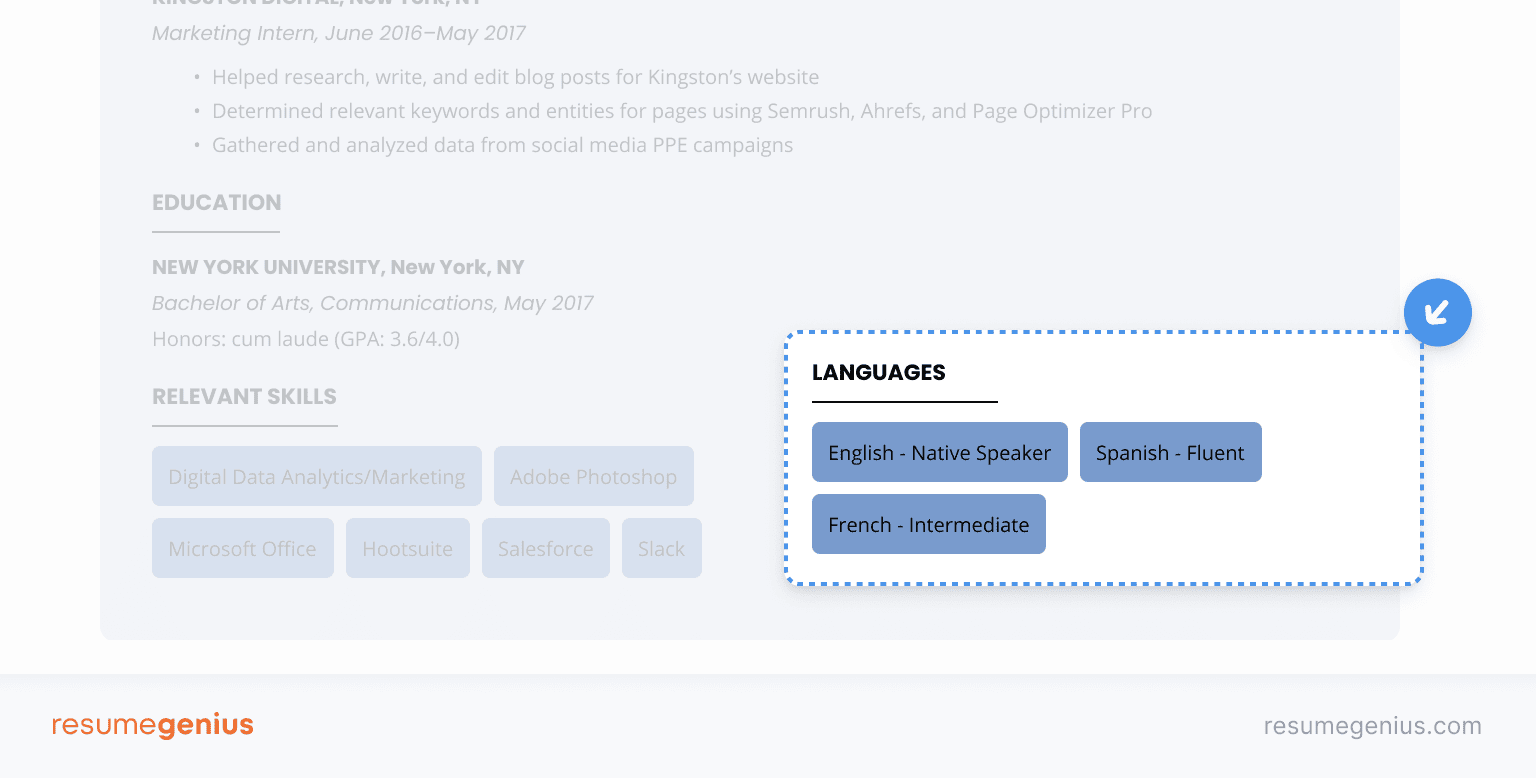
Including an additional section on your CV is optional, but the right information can help emphasize your qualifications or win over hiring managers (if it’s relevant).
Here are additional sections that you can include on your CV:
Languages
Candidates who speak multiple languages are valuable in a variety of industries. If you’re a polyglot, consider listing languages in a separate section on your CV to show off your skills.
Interests
Including interests or hobbies on your CV is a great way to stand apart from other applicants and show employers that you’re a good culture fit for their company.
However, before adding an interests section to your CV, consider whether your hobbies are relevant to the company you’re applying to and are work-appropriate. Also, consider the company’s level of formality.
Volunteer work
Adding a section for volunteer work on your CV is a great way to highlight some of your transferable skills and demonstrate that you’re involved in your community.
Publications
If you’re writing an academic CV and have published work under your name, feature it in a separate section.
Make sure that every entry in your publications section is cited properly.
Research experience
If you’re a graduate writing your first CV, you may want to include a separate section for any research assistant positions you’ve held.
When listing research experience on your CV, specify the methodologies used and any other details that help explain how you performed your research.
3 good CV examples
To help you get a better idea of what your finished curriculum vitae should look like, here are three professional CV examples:
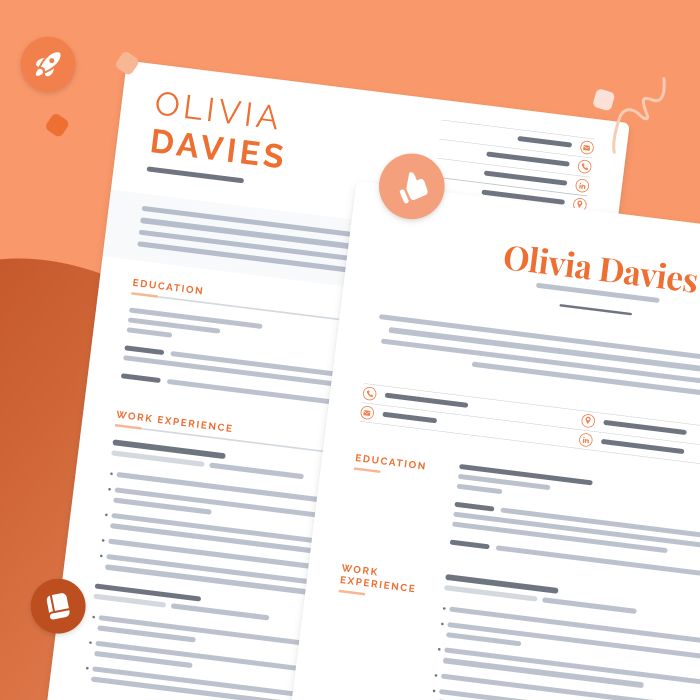
Need to make a CV? The best way to start is by downloading one of our free CV templates and filling it in with your information.
Graduate CV example
First, here’s a CV example from a recent graduate applying to grad school:
Nursing CV example
This nurse practitioner CV example features a separate section for certifications, and the candidate is pursuing a Doctorate Degree:
Academic CV example
Finally, here’s an example an academic CV (the type you’d use in American universities) from a candidate just starting their academic career:
Click to rate this article
4.9 Average rating


